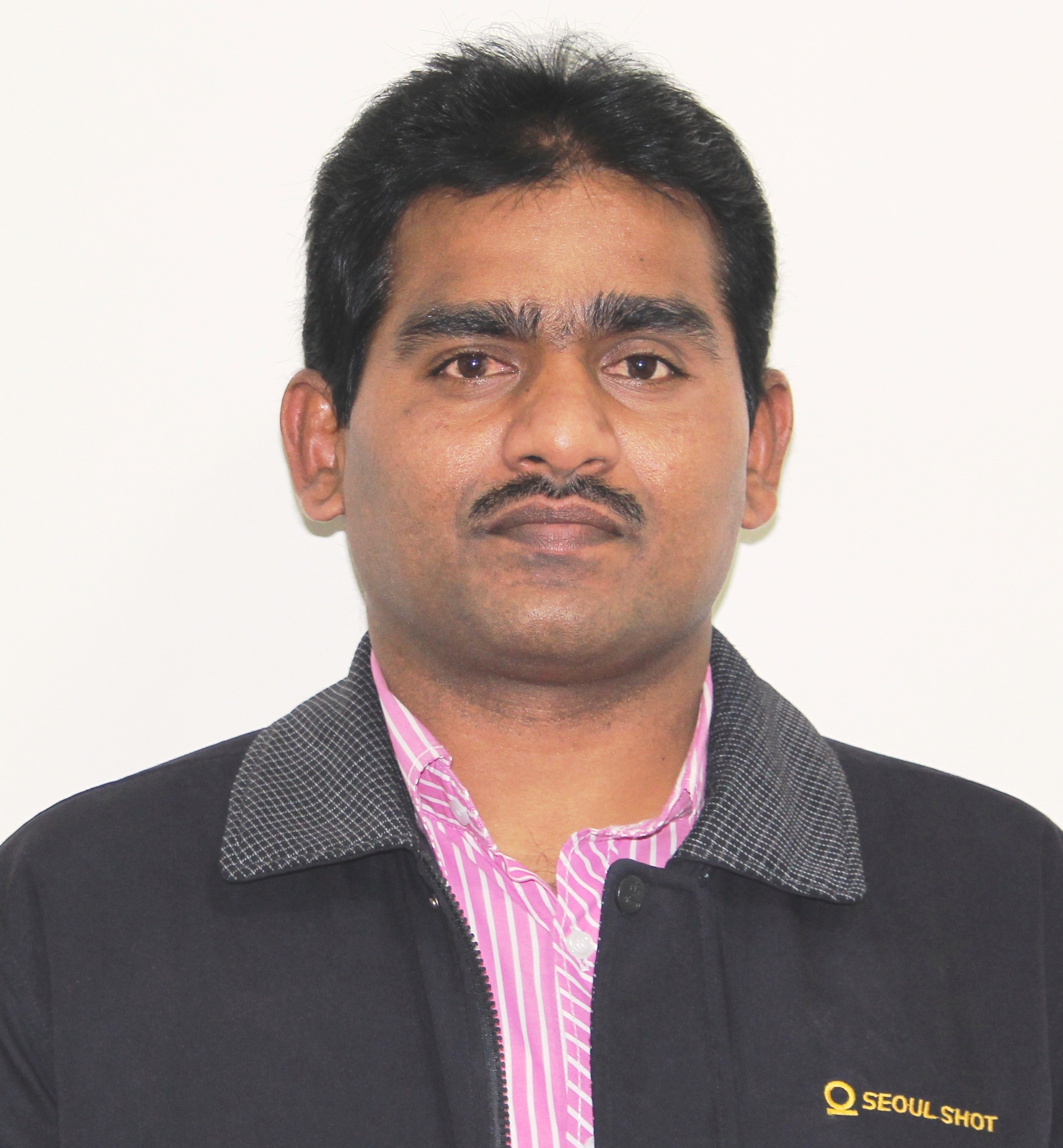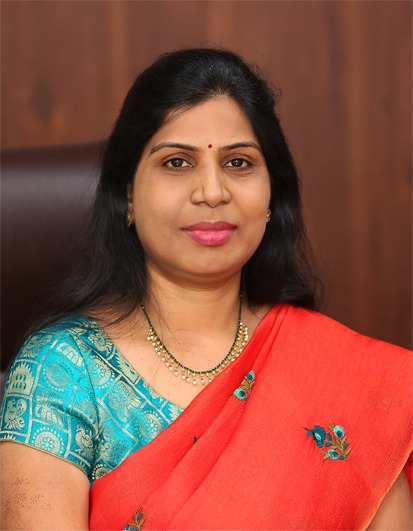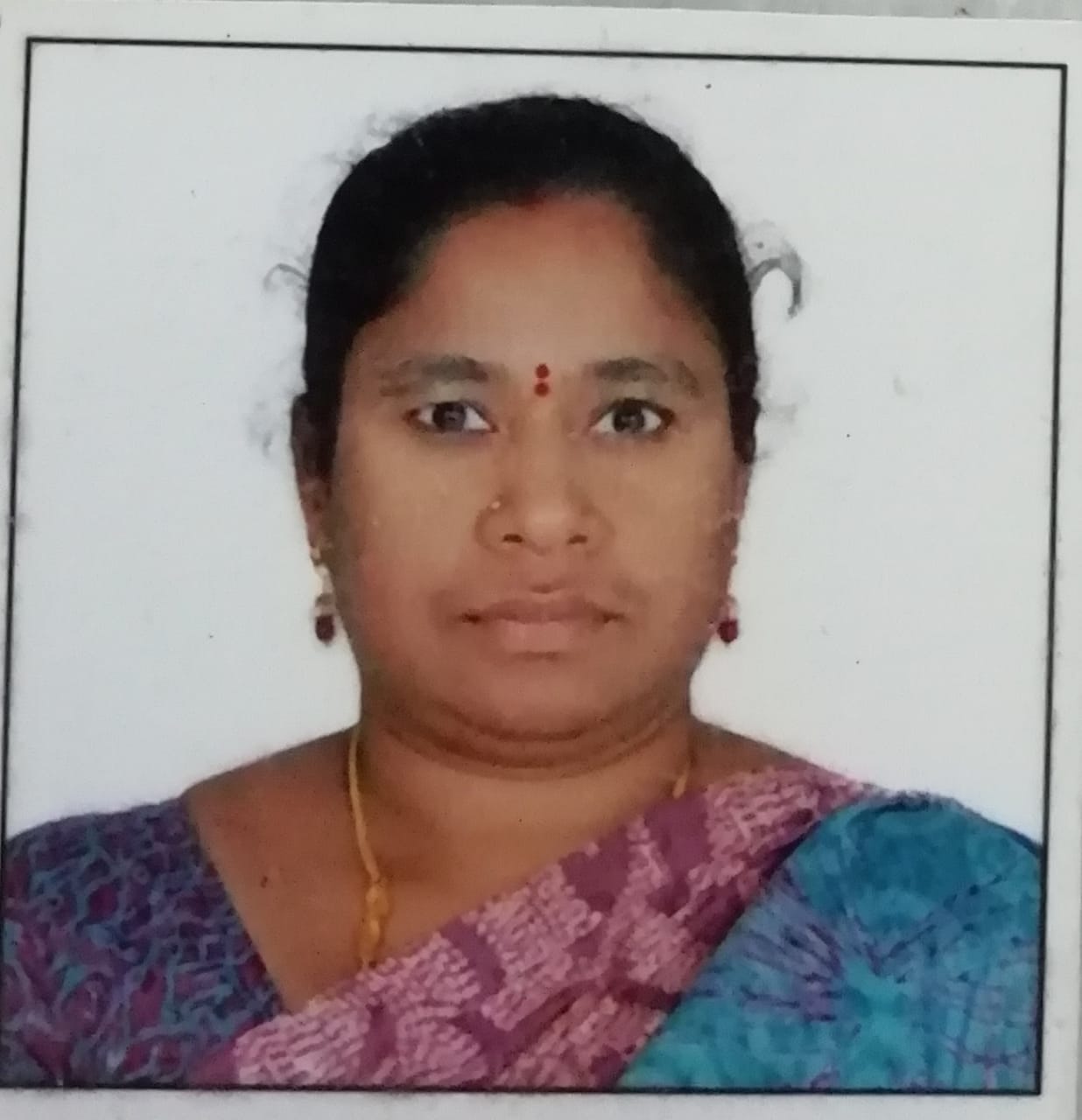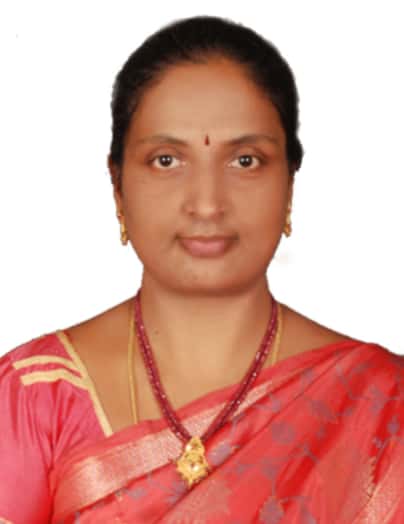

The Department of Electronics & Communication Engineering (ECE) was established in the year 1959 with only two faculty members. It bears the indelible stamp of its founder Head of the Department, late Prof.K.Krishnan Nair. He exhorted ECE Department to become a byname for Excellence, Creativity and Enterprise. In his memory,. The Commemoration Committee organizes an annual lecture by a distinguished professional. In the span of five decades the Department has grown to a complement of 16 members of teaching staff and about 500 students at UG and PG, with the staff specialized in various fields of Digital Systems, Control Systems, Signal Processing, Microwaves, Microprocessor Applications, Computer Systems and Communication Engineering, Embedded Systems and VLSI Design etc. and most of them having Doctorates. The broad spectrum of subjects in the area of ECE is fully represented. The presents of research are on VLSI and Embedded System, Digital Signal Processing, Microwave Engineering, Modern Tele Communications.
To be in the forefront of advances in Electronics and Communication Engineering education and research to guide and motivate young engineers to face future technological challenges.
Program Education Objectives for PG program
M.E. (ECE) - Digital Systems
PEO1: To educate students with analytical and design skills in Digital systems applicable to Industries, R&D labs and Institutions involving Space Communications and Defence Electronics.
PEO2: To strengthen the basic knowledge in mathematical science and applied science with orientation in engineering applications.
PEO3: To develop overall personality and character with team spirit, professionalism, integrity, moral and ethical values with the support of humanities, social sciences and physical educational courses.
PEO4: To equip the students with laboratory training leading to solving real life practical problems and project analysis of Digital systems through case-studies, seminars, mini-projects, internships and main projects.
M.E. (ECE) - Microwave and Radar Engineering
PEO1: To educate students with analytical and design skills in Microwave and Radar engineering applicable to Industries, R&D labs and Institutions involving Space Communications and Defence Electronics.
PEO2: To strengthen the basic knowledge in mathematical science and applied science with orientation in engineering applications.
PEO3: To develop overall personality and character with team spirit, professionalism, integrity, moral and ethical values with the support of humanities, social sciences and physical educational courses.
PEO4: To equip the students with laboratory training leading to solve real life practical problems and project analysis of Microwave and Radar Engineering through case-studies, seminars, mini-projects, internships and main projects.
M.E. (ECE) - Systems and Signal Processing
PEO1: To educate students with analytical and design skills in Signal Processing applicable to Industries, R&D labs and Institutions involving Space Communications and Defence Electronics.
PEO2: To strengthen the basic knowledge in mathematical science and applied science with orientation in engineering applications.
PEO3: To develop overall personality and character with team spirit, professionalism, integrity, moral and ethical values with the support of humanities, social sciences and physical educational courses.
PEO4: To equip the students with laboratory training leading to solving real life practical Problems and project analysis of Systems and Signal Processing through case studies, seminars, mini projects, internships and main projects.
M.E. (ECE) - VLSI & Embedded Systems
PEO1: Employability in the diversified sectors of core industry, public sector or multinational corporations, in the domain of Semiconductor Technology, ASIC Design and Verification, Embedded Systems- Hardware and Software Development.
PEO2: Ability to pursue higher education in technologies related to VLSI and Embedded Systems at institutes of repute and high standard leading to contributions to technology.
PEO3: Attitude of lifelong learning and skills of effective inter-person communication resulting in leading diverse teams, with ethical and social behaviour
PEO4: To equip the students with laboratory training leading to solve real life practical problems and project analysis of Digital systems through case-studies, seminars, mini-projects, internships and main projects.
PEO5: Design and conduct experiments, analyze and interpret data, imbibe programming skills for development of simulation experiments.
| Head of the Department | |
|---|---|
 |
Prof. D. Rama Krishna (Emp. ID- 50027)B.Tech, M.E, Ph.D Areas of InterestsRF and Microwave Communication Systems |
| Professor,Vice Principal, UCE, OU | |
 |
Prof. P. Chandrasekhar (Emp. ID- 50022)Ph.D Areas of InterestsDigital Systems & Computer Electronics, Digital & Analog VLSI |
| Professor | |
 |
Prof. B. Rajendra Naik (Emp. ID- 50024)M.E, Ph.D Areas of InterestsDigital Systems Engineering & VLSI |
| Professor | |
 |
Prof. L. Nirmala Devi (Emp. ID- 50026)M.E, Ph.D Areas of InterestsSystems and Signal Processing |
| Professor, Director, Centre for Excellence in Microwave | |
 |
Prof. D. Rama Krishna (Emp. ID- 50027)B.Tech, M.E, Ph.D Areas of InterestsRF and Microwave Communication Systems |
| Professor, Nodel Officer/Point of Contact for the MoU between, OU & Ostbayerische Technische Hochsch | |
 |
Prof. P. Naveen Kumar (Emp. ID- 50028)M.E, Ph.D Areas of InterestsDigital Systems & Computer Electronics, SATELLITE NAVIGATION, RADIO WAVE PROPAGATION AND WIRELESS COMMUNICATIONS. |
| Professor | |
 |
Prof. P. Kotilaksmi (Emp. ID- 50030)M.E, Ph.D Areas of InterestsVLSI design, Design for testability, Design of fault tolerant systems, Wireless and Mobile Communications |
| Associate Professor | |
 |
Dr. A. Bharathi (Emp. ID- 50033)B.Tech, M.E, Ph.D Areas of InterestsMicrowave & Radar Engineering |
| Associate Professor | |
 |
Dr. R. Sandhya (Emp. ID- 50031)B.Tech, M.Tech, Ph.D Areas of InterestsWireless Sensor Networks, WCDMA systems, Optical Communications |
| Associate Professor, Joint Director of Evaluation (UG), Exam Cell, UCE, OU | |
 |
Dr. M. Shyam Sunder (Emp. ID- 50034)M.Tech., Ph.D. Areas of InterestsMicrowave & Millimeter Engineering |
| Assistant Professor | |
 |
Mrs. P. Padma (Emp. ID- 50025)M.Tech Areas of InterestsDigital Systems & Computer Electronics |
| Assistant Professor | |
 |
Mr. Md. Misbahuddin (Emp. ID- 50035)B.Tech, M.E Areas of InterestsDigital Electronics, Digital Communication, IC Applications, Scripting Languages |
| Assistant Professor | |
 |
Dr. P. Srividya (Emp. ID- 50032)P.hD Areas of InterestsSystems and Signal Processing |
| Assistant Professor (Contract) | |
 |
Mr. K. Prem Kumar Kondi (Emp. ID- ----)B.E Areas of Interests--- |
| Assistant Professor (Contract) | |
 |
Mr. R. Narender Reddy (Emp. ID- ----)Mr. R. Narender Reddy (Emp. ID- --) M.E Areas of InterestsMicrowave and Radar Engineering |
| Assistant Professor (Contract) | |
 |
Mr. G. Kishore Kumar (Emp. ID- ----)M.Tech Areas of InterestsSystems and Signal Processing |
| Assistant Professor (Contract) | |
 |
Mr. B. Ramesh (Emp. ID- 801793)M.Tech Areas of InterestsMicro Electronics & VLSI Design |
| Program | Full Time/Part Time | Year of Starting | Duration (Years) | Intake> |
|---|---|---|---|---|
| UG (BE-ECE) | Full Time | 1959 | 4 | 50 |
| PG (ME) | ||||
| Digital Systems | Full Time | 1964 | 2 | 13 |
| Part Time | 1978 | 3 | 15 | |
| Systems and Signal Processing | Full Time | 1964 | 2 | 13 |
| Part Time | 1978 | 3 | 15 | |
| Microwave and Radar Engineering | Full Time | 1972 | 3 | 22 |
| Part Time | 1978 | 3 | 15 | |
| ES & VLSI Design(SF) | Full Time | 2007 | 2 | 13 |
The Department has an excellent record of research activities in the areas of Microwave Engineering, Wireless and Mobile Communications, Low Power VLSI, Embedded Systems, Computer Networks, Computer Vision and advanced Signal Processing.
The Self - Sustainability Support Scheme (SSS) programme was supported by the Ministry of Information Technology, Government of India. The main object of this Project was to make the department self-sustainable through earning by way of conducting Continuing Engineering Education Programme courses and consultancy works etc.
The Department has also been selected for implementing the Electronics Education Network Project (Network Project) along with four other Institutions in the Southern India by Swiss Agency for Development and Cooperation (SDC) of various academic activities.
The Department was identified in TEQIP – I and established VLSI & Embedded Systems Laboratory with Micro-wind, VxWorks, Metrowerks, VHDL/VERILOG, Logic Analyzer, 8051 Development boards. Many faculty members attended International conferences and presented research papers. The Department organized short term courses on Embedded Systems, DSP and Communications etc.
Under Technical Education Quality Improvement Program (TEQIP II), faculty members have been attended Intensive Training Programmes and International Conferences and organizing short term courses.
The Department is procured state of art lab equipment and software tools such as Cadence, Tanner, Matlab, Simulink, HFSS, Spectrum analyzer, Lab View, ORCAD, ARM DSP boards, Seven Digital Storage Oscilloscopes, Server for VLSI Lab, 4 LED Projectors, Printer with Scanning facility, 17 Desktop Computers and Computer tables and Chairs.
Department has successfully completed CARS project with DRDO entitled “Real time Algorithms in Matlab and Implementation Scheme for Analysis of LPI Radar Signals,” under the supervision of Prof. K. Subba Rao and Dr. P. Laxminarayana, NERTU, OU., with a funding of Rs. 9 Lakhs.
In association with M/s. Astra Microwave products Limited, Hyderabad “Centre for Excellence in Microwave Engineering” has been established in the Department. The Objectives of the Centre are to encourage UG and PG students/ Research Scholars in the fields of RF Circuit Design, Microwave Circuit design, Simulations of Numerical methods in Electro-magnetics, Antenna Analysis and Design and Microwave Communication System Design.
National programme on Micro and smart systems (NPMASS) of IISc Bangalore identified CEME/Department to establish a National MEMS Design Centre. The main objectives of this activity are to make various MEMS Design tools available to research scholars and man power development programme to be carried out within and outside of our Institute. Under this program, the Department received three different MEMS Design software.
The Department received two research fellowships and DSP Processors boards worth US$ 11000 from Analog Devices and successfully completed this project.
The Department jointly with NERTU, OU was sanctioned DST - FIST project. Under DST - Fist project the department procured the following equipments.
| S.No | Name of the Equipment |
|---|---|
| 1 | Laser Range Finder Make: Survey Labs, Model: IKE 305 |
| 2 | CDMA DSSS Trainer Kit with PC based Logic Analyzer Make: Scientech, Model: 2131A |
| 3 | Satellite Communication Trainer Kit Make: Scientech, Model: ST2271 |
| 4 | GPS Trainer kit Make: Kencraft, Model: KE - GPS -01 |
| 5 | GPS/GSM Integration Kit Make: Keil. Model: MCB - 1750 |
| 6 | Data Acquisition System Make: NI, Model: PXIe - 1062Q |
| 7 | Rover, Base Station, VHF –UHF System Make: SOKKIA Model: GRXI |
CV Raman Heterogeneous High Performance Parallel Computing Lab Department received Rs. 5, 00,000/- as a grant and 18 Desktops from AMD India Private Limited and established C.V. Raman Heterogeneous Computing lab in August 2012. The objectives of this project are to carry out collaborative research and conduct seminars/workshops in parallel processing. As a part of the project, the Department introduced an elective subject, “Open CL Programming for Advanced Graphic Processors”.
Dr.P.NaveenKumar, established a new “Advanced GNSS Research Laboratory” under MoU between University College of Engineering (UCE), OU and Space Applications Centre (SAC), Indian Space Research Organization (ISRO), Ahmedabad, in the Department of Electronics and Communication Engineering, UCE,OU. This laboratory was inaugurated on 27th April, 2017, by Chairman, ISRO, Shri.A.S.KiranKumar. This laboratory consists of 1 Single frequency GPS/GAGAN JUNO TRIMBLE receiver, 1 Canadian make NOVATEL GPStation-6 GNSS/SBAS TEC & Scintillation Monitor, 4 IRNSS/GAGAN/GPS receiver Station (Data Patterns and Accord Software & Systems Pvt. Ltd make). Dr.NaveenKumar is also instrumental in signing of MoU between UCE, OU and SAC, ISRO on 15th September, 2017, at SAC, ISRO
| S.No. | Faculty Name | Title | Funding Agency | Amount in Rupees | Duration | Start Month and Year |
|---|---|---|---|---|---|---|
| 1 | Prof. P. Chandra Sekhar | Development of GNSS Waveform Generator | Mathworks India Pvt Ltd | 31.5 Lacs | 2 Years | October, 2023 |
| 2 | Prof. D. Ramakrishna | Antenna and RF PCB component characterization | Mathworks India Pvt Ltd | 23.4 Lacs | 2 Years | September, 2023 |
| 3 | Prof. P. Chandra Sekhar | The Design, Fabrication and Development of Silicon Proven IP Core for High Resolution ADPLL | MeitY, Govt of India | 191.5 Lacs | 5 Years | May, 2023 |
| 4 | Prof. L. Nirmala Devi | An autonomous bird deterrent system for Crop protection using UAVs | TIH-IITH | 24.47 Lacs | 1.5 Years | July, 2022 |
| S.No | Details | Year of Purchase | Funding Source |
|---|---|---|---|
| 1 | Scalar Network Analyzer | 2000 | Dept. |
| 2 | 8051 Development Suite assembler, simulator, debugger, emulation modules | 2005 | TEQIP Phase - I |
| 3 | Meterowerks: Code Warrior Development studio/ HCS08, DSP ARM | 2005 | TEQIP Phase - I |
| 4 | Agilent Logic Analyzer | 2005 | TEQIP Phase - I |
| 5 | Vector Network Analyzer | 2005 | DST -FIST |
| 6 | GPS with integrated Laser Range Finder | 2009 | DST-FIST |
| 7 | CDMA-DSSS Trainer Kit with Bit Error Rate | 2009 | DST-FIST |
| 8 | PC based Logic Analyzer 32 Channel | 2009 | DST-FIST |
| 9 | Satellite Communication Trainer Kit | 2009 | DST-FIST |
| 10 | GPS Trainer Kit | 2010 | DST-FIST |
| 11 | GPS/ GSM/ GPRS Integration Kit | 2010 | DST-FIST |
| 12 | Data Acquisition System | 2010 | DST-FIST |
| 13 | Rover base station, UHF/VHF system | 2011 | DST-FIST |
| 14 | Analog Devices: Black fin and Sharc Processors | 2008 and 2011 | Analog Devices funding |
| 15 | Xilinx: FPGA Spatron and Vertex Boards | 2011 | Xilinx University Funding |
| 16 | Cypress Semiconductors Inc | 2011 | Cypress funding |
| 17 | Digital Storage oscilloscope | 2013 | TEQIP-II |
| 18 | 3D EM Simulation Tool (HFSS) | 2013 | TEQIP-II |
| 19 | DSP Development Kit (Microchip) | 2013 | TEQIP-II |
| 20 | Spectrum Analyser | 2013 | TEQIP-II |
| 21 | ARM Core S/W and H/W Target Boards | 2013 | TEQIP-II |
| 22 | Desktop Machines (17) | 2013 | TEQIP-II |
| 23 | 8 Port POE Switches (1) | 2013 | TEQIP-II |
| 24 | LED Projectors (2) | 2013 | TEQIP-II |
| 25 | VLSI Server (1) | 2013 | TEQIP-II |
| 26 | 10 KVA UPS (1) | 2013 | TEQIP-II |
| 27 | 20GHz RF Signal Generator | 2013 | TEQIP-II |
| 28 | NVDIA TESLA K 40 Accelerated Card | 2013 | TEQIP-II |
| 29 | Server Machine | 2013 | TEQIP-II |
| 30 | GP Station-6 GPS & SBAS TEC & Scintillation Monitor at L1, L2, L5 Frequencies with A/C adopter for 230V, 50Hz, Indian Power supply and three round pin plug and all cables and CD along with GPS 703-GGG antenna mount and 30 meter antenna cable | 2013 | TEQIP-II |
| 31 | Microwave Kits | 2017 | Integrated Device Technologies |
| S.No | Details | Year of Purchase | Funding Source |
|---|---|---|---|
| 1 | Xilinx ISE Foundation 13.1 | 2012 | Xilinx University Funding |
| 2 | Microwind | 2006 | TEQIP Phase I |
| 3 | Active HDL/ Verilog HDL | 2005 | TEQIP Phase I |
| 4 | Vx Works Tornado IDE Package |
2005 | TEQIP Phase I |
| 5 | Agilent ADS | 2007 | Astra |
| 6 | AWR Micro Wave Office | 2007 | Astra |
| 7 | IE3D | 2007 | Astra |
| 8 | Code Composer Studio | 2008 | Analog Devices |
| 9 | Sonnet | 2007 | |
| 10 | Visual Digital Signal Processing | 2008 | Analog Devices |
| 11 | Tanner | 2007 | UGC |
| 12 | 3D EM Simulation Tool (HFSS) | 2013 | TEQIP-II |
| 13 | Tanner Tools | 2013 | TEQIP-II |
| 14 | Cadence Tools | 2013 | TEQIP-II |
| 15 | Matlab with Simulink | 2013 | TEQIP-II |
| 16 | NI-Lab View Package | 2013 | TEQIP-II |
| 17 | OrCad Simultion Suite | 2013 | TEQIP-II |
| 18 | Redhat linux V5.X for 64 bit Processor | 2013 | TEQIP-II |
| 19 | Mentor Graphics Hyper Lynx Tool Suite | 2013 | TEQIP-II |
| 20 | VxWorks 7 Plus Platform | 2018 | TEQIP-III |
| 21 | Xilinx Vivado System Edition | 2018 | TEQIP-III |
| 22 | Qualnet | 2018 | TEQIP-III |
NOTE: Department Procured COMSOL and INTELLISUITE free of cost from IISC- BANGALORE.
| S.No. | Title of the Paper | Journal details | Month & Year of Publishing | Citation |
|---|---|---|---|---|
| 1. Prof. B. RajendraNaik | ||||
| 1 | Rician Noise Reduction using Dual Tree Complex Wavelet Transform and Self similarity | International Journal of Imaging & Robotics, Volume 19, Issue Number 3, h index 9, ISSN 2231-525X |
2019 | - |
| 2. Dr. R. Hemalatha | ||||
| 1 | A Review of Vulnerabilities of ADS-B | International Journal of Research in Advent Technology, Vol.6, No.7, (E-ISSN: 2321-9637) |
July 2018 | - |
| 3. Dr. D. Ramakrishna | ||||
| 1 | Design and Development of Cavity-Backed Reconfigurable Square Spiral Antenna | IETE Journal of Research, DOI: 10.1080/03772063.2018.1509737. |
August 2018 | - |
| 2 | Design and Development of a Novel EBG Cell | Progress In Electromagnetics Research M, Vol. 72, 105–114, 2018. doi:10.2528/PIERM18041805 | August 2018 | - |
| 4. Mrs. P. Kotilakshmi | ||||
| 1 | Design of low noise amplifier for C-band receivers using pHEMT | International research journal of engineering and technology (IRJET), Vol 05, Issue 08 e-ISSN: 2395-0056 p-ISSN: 2395-0072 |
August 2018 | - |
| 5. Dr. A. Bharathi | ||||
| 1 | Polarization Reconfigurable Corner Truncated Square Microstrip Array Antenna | IETE Journal of Research DOI: 10.1080/03772063.2018.1557084 |
January 2019 | |